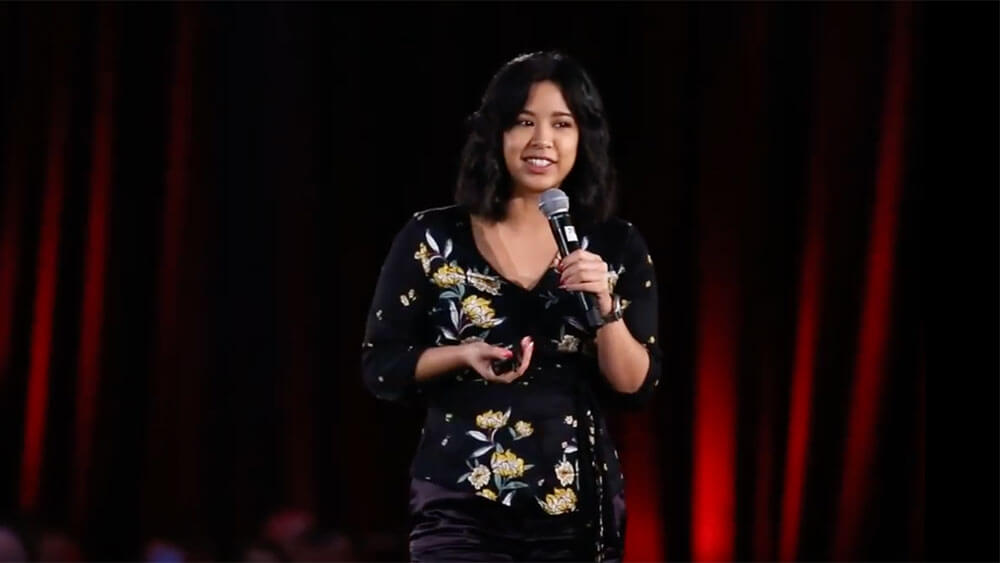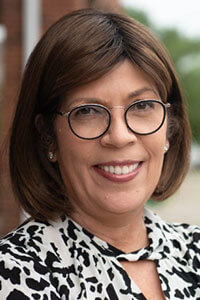
Armida Ascano speaks about the future of generations at a Future Festival event. (Screengrab)
When the phrase “OK, Boomer” echoed off the walls of the New Zealand Parliament in November, the sarcastic response from a 25-year-old lawmaker to an older heckler was a reminder of the generational divide. As many brands work to capture the buying power of Millennials and satisfy the social media addictions of Generation Z, today’s marketing landscape seems to be defined by the adage of “out with the old, in with the new.” That approach, though, is missing opportunities to connect with a generation that is not looking at life through a traditional retire-and-relax lens.
“The way we talk about generations is rooted in stories that are, at this point, very dated,” Armida Ascano, chief insights officer at Trend Hunter, said at Future Festival in Chicago on December 3. “We believe that Baby Boomers will start aging backwards.”
One of the company’s top trends for 2020 is a term that mixes two generations: Boomerlennials. Instead of looking at generations in common buckets, Trend Hunter divides the current categories of age brackets in nine micro-generations. Baby Boomers — or Boomerlennials — include Leading Boomers, who were born between 1946 and 1954, and Neo-Boomers, who were born between 1955 and 1964.
For the Leading Boomers who have already retired or are close to it, Ascano highlighted that they will be embracing a Millennial-like appetite for discovering new experiences. “We call it potentialism,” she said. “What used to be empty-nest syndrome is now seen as an opportunity to explore something new.”
Consider Silvernest, which aims to fill some of those empty nests with well-matched roommates who provide extra income and companionship. Sound familiar? It’s like Airbnb — one of the most Millennial-friendly business models in use today — designed specifically for an older generation. Plenty of retirees are using it, too. The company operates in all 50 states, and it’s bringing together members of different generations: The average homeowner on the platform is 62, and the average renter is 40.

Donna Kastner
While Leading Boomers are welcoming new people to their homes, Neo-Boomers are exploring new career opportunities. Consider Bizstarters, a service that specializes in helping Boomer business owners. Ascano pointed out that 65 percent of them plan to work beyond retirement age. It’s a statistic that she believes is a signal of them “rebelling against what it means to age.”
Those rebels will not be able to find all the knowledge or connections they need online, and the right professional conference can be a place to learn and grow. Donna Kastner, founder of Retirepreneur, called it “a golden opportunity for event organizers to seize.”
“Have we forgotten the 50- and 60-somethings who have amassed three decades or more of knowledge, wisdom, and experience in their fields?” Kastner wrote in “Why the Over-50 Crowd Still Matters for Events.” “At many conferences, this vintage crowd is largely ignored. Keep in mind, many in this over-50 crowd have discretion and funding to attend any conference they wish, but they’re not feeling the love these days at many events.”
Ascano offered Future Festival attendees simple advice on rethinking a marketing plan that can deliver that love: Ditch the mindset that attaches a name to every group. “Focus on what unites people,” she said, “not what isolates them.”
David McMillin is an associate editor at Convene.
Related
- Watch “Events as a Powerful Catalyst for Richer Intergenerational Dialogue” to learn more about prioritizing Baby Boomer attendees at your next meeting or conference.
- Read “Startup Gives Baby Boomers New Options” for more on Donna Kastner’s Retirepreneur.
